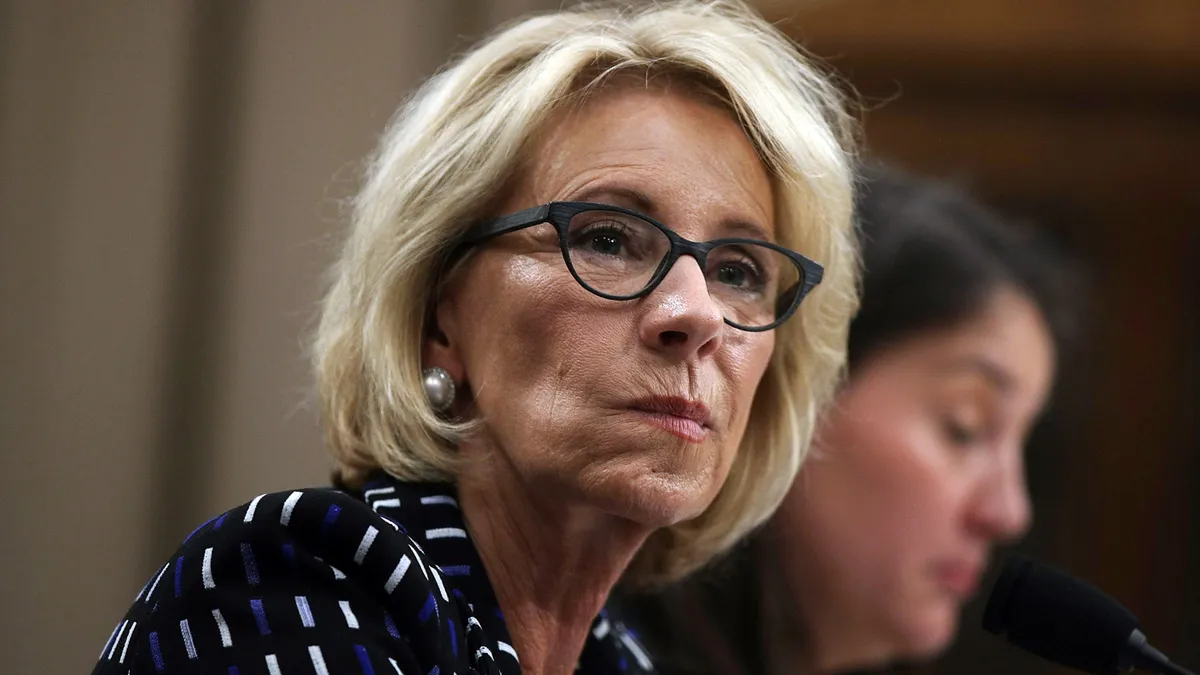Dive Brief:
- A federal judge on Friday ruled that the U.S. Education Department illegally delayed implementation of Obama-era distance education rules by not holding the requisite negotiated rulemaking process before pushing them back.
- As a result, the rules — originally set to go into effect in July 2018 but postponed until July 2020 — could be on the books as soon as next month, according to Politico, which first reported the news. A department spokeswoman told the publication the delay gave them time to conduct a negotiated rulemaking session and get "consensus" on new rules.
- The ruling comes less than a month after negotiators reached consensus on those new rules, following about three months of negotiated rulemaking. Pending public comment, those rules are slated to go into effect in July 2020.
Dive Insight:
The ruling is in response to a lawsuit by the National Education Association and the California Teachers Association against Education Secretary Betsy DeVos and the department. It alleged the agency's failure to conduct a negotiated rulemaking session prior to delaying the Obama-era rules — instead of many months after — violated the Higher Education Act, and that the rules should be implemented immediately.
The department, however, said it had the required "good cause" to forgo negotiated rulemaking, arguing it was not feasible to undergo that process and come up with a final rule prior to July 2018. It also called its failure to undertake negotiated rulemaking a "harmless error."
In the ruling, the U.S. District Court for the Northern District of California said "the supposed insufficient time" to come up with a new rule "is not good cause to forgo the HEA's statutorily mandated negotiated rulemaking process." The judge also ruled that the failure to conduct rulemaking prior to the delay "was not a harmless error."
The ruling is just the latest movement in a roughly decade-long effort to rewrite the department's higher education regulations. Higher ed groups had previously asked for clarification on elements of the Obama-era proposal, including how to determine a student's state of residence and on a requirement for documenting state processes for addressing student complaints.
In May 2018, the department published a notice of proposed rulemaking saying, "guidance is not the appropriate vehicle to provide the clarifications needed" and that their "complexity" requires input from "negotiators who have been engaged in meeting these requirements."
Opinions on the decision to rewrite the rules rather than clarify them were divided across the industry, Inside Higher Ed reported at the time.
The result of that negotiated rulemaking session this year is a new set of rules developed by a group of negotiators with strong ties to distance education. According to the department, the rules would speed up colleges' ability to change their programs and accreditors' path to federal recognition, among other allowances.
Critics of the process were uncertain consensus was possible, and some say all stakeholders, particularly students, were not adequately represented in the discussions.














